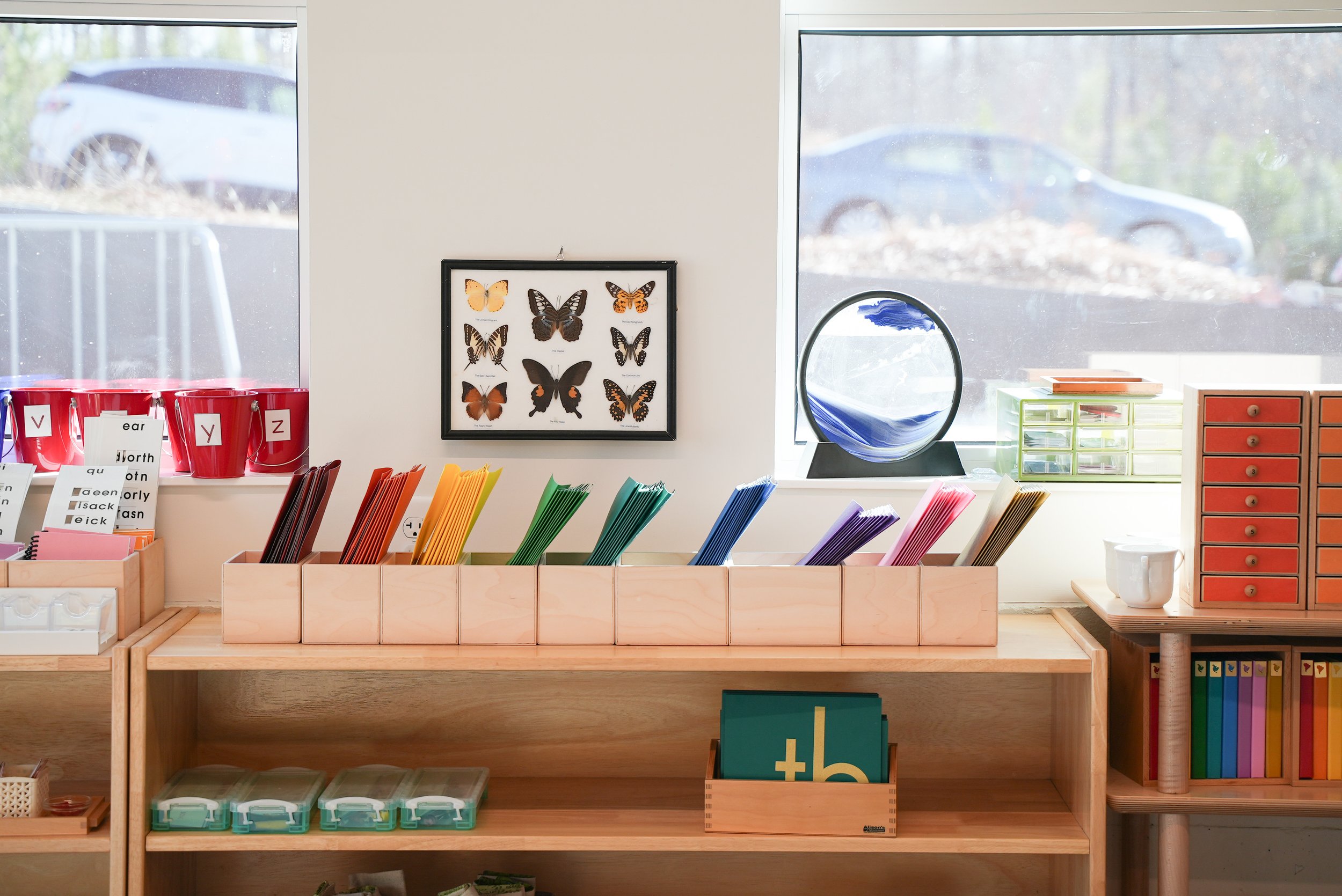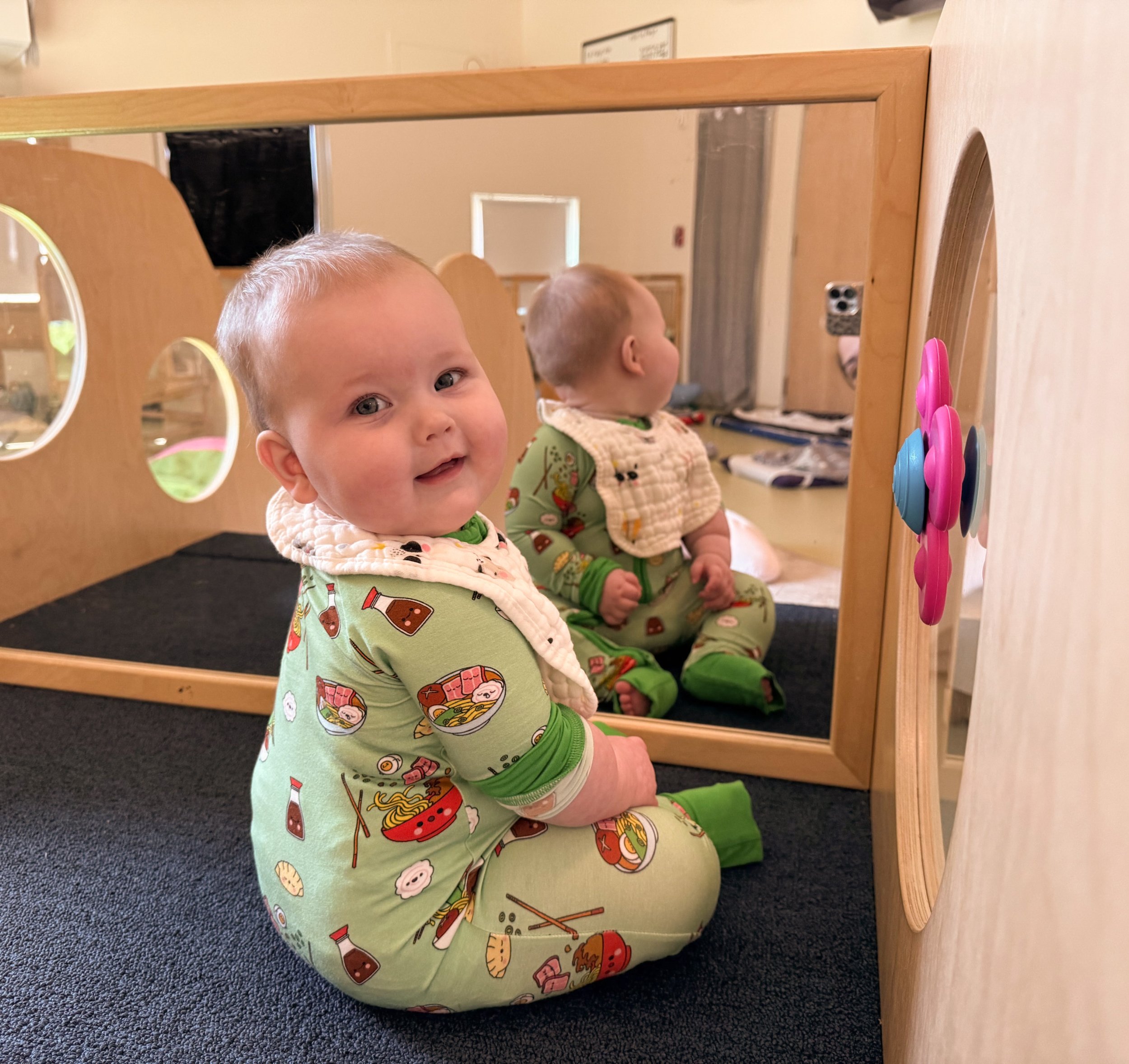
Lower School
Our Lower School program is based on Montessori philosophies and serves learners from 8 weeks up to 7 years old.
Montessori outcomes focus on fostering independent, self-directed learners with a deep love for knowledge and a strong sense of personal responsibility. Through this holistic approach, our Montessori educators aim to cultivate not only academic excellence but also social, emotional, and practical life skills in children. With our unique blend of Montessori pedagogy and nature-based learning, each child enjoys the freedom to explore scientifically researched, hands-on materials while forging authentic and enduring connections with guides, peers, and the world around them.
Our program is licensed under Georgia’s “Bright from the Start” program. Lead guides are certified through the Montessori Accreditation Council for Teacher Education (MACTE) and follow lesson sets put forth by the American Montessori Society (AMS) while keenly observing sensitive developmental periods within each group of learners.
Terra School at Serenbe’s Lower School has earned its accreditation from the Pan American Montessori Society (PAMS), joining a vibrant international community of educators, schools, and families dedicated to excellence in Montessori education.
PAMS, established in 1973 by Dr. Feland Meadows and Dr. Elizabeth Caspari, represents schools that reflect authentic Montessori education and outcomes.
What is Montessori?
Montessori learning is an innovative educational approach that cultivates a child's natural curiosity and independence. Developed by Dr. Maria Montessori, this method emphasizes a carefully prepared environment where children engage in self-directed activities. The focus is on fostering a love for learning, promoting intrinsic motivation, and developing essential life skills. In a Montessori classroom, educators act as guides, observing and supporting each child's unique development and allowing them to progress at their own pace in multi-age classrooms. By tailoring their educational journey to individual curiosity and pace, students grasp concepts thoroughly and achieve personalized learning objectives while building critical thinking skills. This holistic approach not only encompasses academic subjects, but also emphasizes the importance of social, emotional, and practical life skills.
-
Montessori education is a holistic approach to child development, focusing on physical, emotional, social, and cognitive growth. Terra School utilizes the American Montessori Society (AMS) recommended curriculum spanning 6 core areas of focus (Practical Life Activities, Sensorial Education, Language Arts, Mathematics, Cultural Studies, Art and Music). These areas are interconnected and children progress at their own pace, fostering a love for learning and a sense of independence.
-
By placing children into multi-age groups, our classrooms foster collaboration, catalyze motivation, encourage positive behavior and social-emotional learning. The children share common interests and abilities, but benefit by modeling and learning from the wisdom and perspectives of students at various stages of development. In older students, this approach cultivates leadership skills, compassion, responsibility, and empathy. Younger learners acquire orderly work habits and ethical values. The curriculum repeats previous lessons year after year, giving the learners opportunities to dive deeper into the subject matter as they reach new milestones. The children not only learn from their own experiences, but also from the collective experiences of peers of different ages.
-
Every lesson is facilitated with hands-on, self-correcting, scientifically-researched materials appropriate for each child’s sensitive period of development. Every child is treated with respect and leads to education that is situated in intrinsic motivation. Our classrooms stand as respectful, purposeful environments, meticulously crafted with the child's interests and needs in mind. Orderliness and beauty are pivotal in fostering successful learning and instilling work habits and ethics. Tailored to specific age groups, each classroom is designed to facilitate learning in each plane of development. Infants and toddler classrooms feature Practical Life materials, and introduce multi-sensory and language materials to nurture vocabulary development. Primary classrooms feature more advanced lessons, strategically prepared to challenge and ignite the child's interests across all realms of learning.





